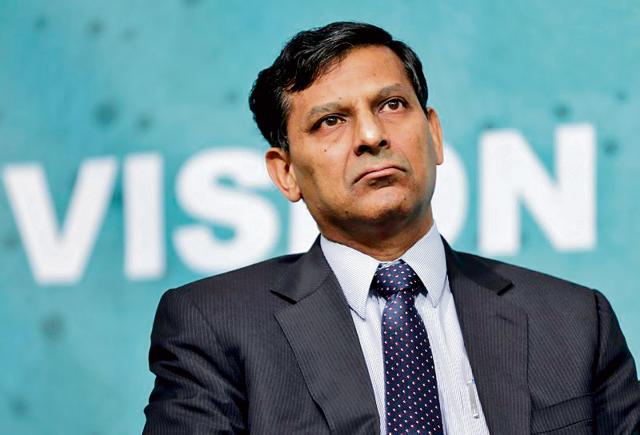His name is Raghuram Rajan and he says what he says
Rajan continues to use a lingo of frankness that served him well in the United States, where in 2005 he said financial development had made the world riskier
Funny that Raghuram Rajan should use the “country of the blind” metaphor to describe India’s position as the one bright spot in global economy. He would have read HG Wells’ short story of that name. Haven’t you?

Wells wrote it more than 100 years ago. It is the story of Nunez, a mountaineer who falls into a land where everyone is blind. Popular wisdom says Nunez should have been twice the king there, since both his eyes were fine. Instead, he was found to be a misfit, and scoffed at for his “imagined” sight. The native doctor said Nunez could be cured of his insanity if the two soft organs below his forehead could be removed.
So what did the Reserve Bank governor mean by his one-eyed man remark? Is India in a good place or bad? Whatever, the hope is that Rajan has started a process that will result in the country having its own unique lingo for public discourse, whose quality has not scaled many great heights of late.
Read | Indian economy like ‘one-eyed’ king in land of blind: RBI’s Rajan
Rajan continues to use a lingo of frankness that served him well in the United States. He began his rise to global economic celebrity in August 2005. It was the annual gathering of high-powered economists in the United States. Alan Greenspan was retiring as the Chairman of Federal Reserve, their central bank, after a period of robust growth. Rajan chose to spoil his retirement party with a paper titled, Has Financial Development Made the World Riskier. He ended by saying it indeed had.
The paper made Rajan unpopular for three years. Once the financial crisis set in, they called him a seer, a reputation that contributed in no small measure to his becoming the RBI governor. So why would Rajan stop speaking his mind now? His opening statement after becoming the RBI governor in September 2013 set the tone for his tenure, that he was not looking for Facebook “likes”.
There was hardly a need to state that. As far back as 2008, Raghuram Rajan said in a speech before the Bombay Chamber of Commerce that Indians tolerated venal politicians because “he is the crutch that helps the poor and underprivileged negotiate a system that gives them so little access” to public services that are their right.
That has been a recurring theme with him. In August 2014, at the Lalit Doshi Memorial Lecture, he said: “One of the greatest dangers to the growth of developing countries is the middle income trap, where crony capitalism creates oligarchies that slow down growth.”
And then he took on Prime Minister Narendra Modi’s Make in India campaign. “... the world as a whole is unlikely to be able to accommodate another export-led China.” Instead of Make in India, he said, “we have to look to regional and domestic demand for our growth - to make in India primarily for India.”
Other statements kept coming. Such as his speech at the IIT Delhi, where he said the idea of anyone imposing a particular view or ideology because of their power shouldn’t be the way. And his proclamation after cutting rates on September 29 last year: “I don’t know what you want to call me... Santa Claus... you want to call me hawk, I don’t know. I don’t go by this. My name is Raghuram Rajan and I do what I do.”
It is against this background that we should see his remark about India being a one-eyed man in a country of the blind, as well his explanation after a small furore. “Every word or phrase a public figure speaks is intensely wrung for meaning,’’ Rajan told graduating students at the National Institute of Bank Management in Pune. “When words are hung to dry out of context, as in a newspaper headline, it then becomes fair game for anyone who wants to fill in meaning to create mischief. Worst, of course, are words or proverbs that have common usage elsewhere, because those can be most easily and deliberately misinterpreted. If we are to have a reasonable public dialogue, everyone should read words in their context, not stripped of it. That may be a forlorn hope.”
The hope is for a balanced and productive language of public discourse. Rajan may sound less than flattering, especially when taken out of context, but his message should not be dismissed. As he said further in Pune: “Listeners should not look for insults everywhere, and should place words in context so as to understand intent. In other words, for effective communication and debate, rather than the angry exchanges that we see on some TV shows, we need both respect and tolerance.”
This can easily be taken out of context. Does Rajan mean that television debates in India, TRP magnets all, are devoid of respect and tolerance?
One hopes that television anchors will take note of, and umbrage at, this and hit out at Rajan. That is how we will move further on the path of developing our own public language. One insult at a time.





